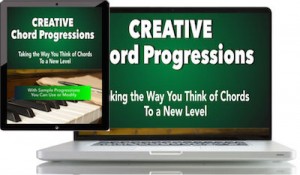We often use the word ego in a negative sense. After a conversation with someone, for example, you might wryly note to yourself, “Well, he has a healthy ego!” And we don’t usually mean it with a positive connotation.
In that negative sense of how we usually use the word, we typically mean that the person has an overinflated view of their abilities. But ego simply means “a person’s sense of self-esteem or self-importance“, and, in measured doses, can and should be a good thing.
I think that more negativity comes from a poor sense of self-worth, more so than what comes from an overinflated ego. A person who shows little sense of self-worth will usually find it difficult to engage in self-promotion, or allow and accept congratulations for achievements. A diminished sense of ego is not a good thing for artists in general, nor for songwriters specifically.
It takes a somewhat robust ego to be a successful songwriter, because you’re putting your own thoughts, feelings and opinions in the spotlight for everyone to see. That kind of public scrutiny doesn’t favour the songwriter who has doubts or fears. Songwriting, like most art forms, requires courage if you’re presenting those songs publicly, and it’s not for the faint of heart.
The Healthy Songwriter’s Ego
If you find yourself feeling proud of what you do, that’s not an indication of a problem with your ego; it’s the sign of a healthy one. For songwriters, having a healthy ego means that you’re demonstrating some or all of the following:
- You feel proud of your latest songs or album, and like telling others about them.
- You like telling others about your upcoming gigs, and ask them to attend if they can.
- You like telling others about achievements such as winning competitions, or being interviewed by the media, or anything else that has a public aspect.
- You feel that songwriting is an important part of your identity.
- You feel, even in some non-specific sort of way, that you are contributing to the artistic life of your city, province/state or even your country.
If you find that you cringe at the thought of self-promotion, that might also be the sign of a healthy ego. Most artists don’t feel particularly comfortable with it, as we often feel that it’s a bit too close to self-congratulatory behaviour than we like. We need to remind ourselves, though, that there is such a thing as a healthy amount of self-congratulatory behaviour.
When we ever hear the phrase “leave your ego at the door”, it reinforces the unfortunate stereotype of ego as being negative or somehow bad. The kind of ego you should leave at the door is the kind that insists that you place yourself higher than others in importance or value of contribution.
But a healthy ego is important. Feeling proud of the songs you write is an important part of improving, and the sign of a healthy ego.
 Written by Gary Ewer. Follow Gary on Twitter.
Written by Gary Ewer. Follow Gary on Twitter.
 The free deal continues. Get a copy of “Creative Chord Progressions” free of charge when you buy “The Essential Secrets of Songwriting” eBook bundle. Eleven songwriting eBooks that cover every aspect of composing music. Take your songwriting to a new level of excellence.
The free deal continues. Get a copy of “Creative Chord Progressions” free of charge when you buy “The Essential Secrets of Songwriting” eBook bundle. Eleven songwriting eBooks that cover every aspect of composing music. Take your songwriting to a new level of excellence.











Great points, Gary.
It really helps me to think of all those songs I’ve heard over the years, written by others, that have meant something to me. If they’d never promoted them, I’d have never heard them.
It’s with that thought that I bring forth a song to others. Not everyone will like it, but it may really touch someone.
Our songs are like our kids. We raise and release. When we see them as surrogates for ourselves is when we are in danger of unhealthy ego. Similarly, we are not our songs. We create them and then release them as offerings to others.
When I take that mind frame, my ego is protected when someone doesn’t like a song, and yet I’m willing to offer it out there in the hopes they do.
In other words, none of this is about ME.
Great thoughts on this, Chris. Thanks so much for writing. And keep writing those songs! 🙂
-Gary